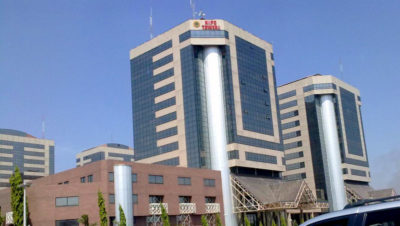
The deregulation of the downstream oil sector and the increase in the pump price of Premium Motor Spirit from N86.5 per litre to N145 have led to the reduction in the consumption of the product by 30 per cent across the country, the Federal Government has said.
This is coming as the Minister of State for Petroleum Resources, Dr. Ibe Kachikwu, formally handed over the position of Group Managing Director of the Nigerian National Petroleum Corporation to Dr. Maikanti Baru, at the corporation’s headquarters in Abuja on Friday.
President Muhammadu Buhari had on Monday approved the appointment of Baru as the new GMD of NNPC.
Speaking at the ceremony, Kachikwu, who outlined some achievements recorded during his 11-month tenure as GMD, stated that Nigeria currently produces between 1.9 to 2.3 million barrels of crude oil daily, adding that the government was working hard to clear the over $6bn joint venture cash call obligations to international oil companies.
He said, “We undertook deregulation at the time nobody thought it was possible and if there’s anything we leave for this industry, it must be the legacy of that deregulation.
“Today our consumption of fuel has gone down by 30 per cent; we have no queues in the filling stations; we have one and a half months of self sufficiency; we have strategic reserves in place that we are putting together and we have a funding scheme to enable the downstream to be able to adequately fund itself.
“We have succeeded in removing subsidy and saving over N1.4tn for this country on a yearly basis. We have reduced upstream contracting period from the average of between two and half years to between six and nine months and we have started a massive commercialisation of every aspect of our business.”
Kachikwu said the NNPC has been able to cut operational cost by 30 per cent, adding that Nigerian refineries had started working for the first time in about 10 years, “but still not at the capacity that we want.”
He added, “We need to find a structure, and we have started, in which private funds will come into the refineries and we will be able to rebuild our refineries to 90 or 100 per cent capacity.
“I’ve already made a commitment that by 2018, 60 per cent of refined products importation will stop and by 2019 we must become a net exporter of refined petroleum products. I am happy to announce that in our May results, for the first time in the history of this company, the NNPC made a profit of N270m.”
On JV cash call funding, he said this had been one major challenge.
The minister said, “We are still in the process of covering that gap and paying the arrears of over $6bn and covering up the year-to-year demands of close to about $5m to $6m. We are at the thresholds of finalising negotiations on that and I think we should be almost at the point of sign-off in the next one week.
“This will fundamentally change the upstream business in terms of providing funds and it will remove the delays we’ve had in terms of being able to get upstream developments. And hopefully it will inject 100 per cent performance in upstream and hopefully increase your barrels from present 2.3 million barrels to upward trajectory of three million barrels over the next few years.”
He said the corporation was able to contribute 100 per cent to FAAC two months ago, up from about 60/70 per cent, adding that the NNPC was able to pay for the first time, 100 per cent cash call contributions last month.
Kachikwu, who described the Niger Delta issues as “a big elephant in the room,” stated that the government was trying to devise a model that would address the challenge in the region once and for all.
He said, “We are trying to find a model that works finally for this country on the Niger Delta issue. The work is for everybody, it is not just solely mine, but it is on my door-step and we need to find those solutions so that we can have peace. It is key that we get all the stakeholders in the region in order to ensure development.”
While speaking on talks with militants in the region on the sidelines of the event, the minister said, “We are working on it and I need to meet with Mr. President for I just returned and obviously there’s a lot more engagement that is required. There are gaps that seem to have developed and I need to understand what issues warranted that. But we will work towards closing those gaps.”
When asked to state when the Forcados crude trunk line would become operational, he replied, “By the end of July.”
Kachikwu promised to work with the new GMD and thanked President Mohammadu Buhari for the opportunity given him to manage the corporation.
He said, “It is surprising that in the 11 months, I’ve managed to serve as GMD of NNPC, as Minister of State for Petroleum Resources, as OPEC President, as the President of APPA and I’ve just been appointed the Chairman of NNPC board; all in 11 months. There are not many people in the world who would have those opportunities within that time frame or be given that opportunity by a leader. So we all have the President to be very thankful to.”
On his future role as minister, he said he would work on the Petroleum Industry Bill, gas terms, restructuring of other parastatals and the country’s upstream business.
He also said that he would look at the regulatory overhaul of the entire sector, as many regulations in the industry were outdated.

No comments:
Post a Comment